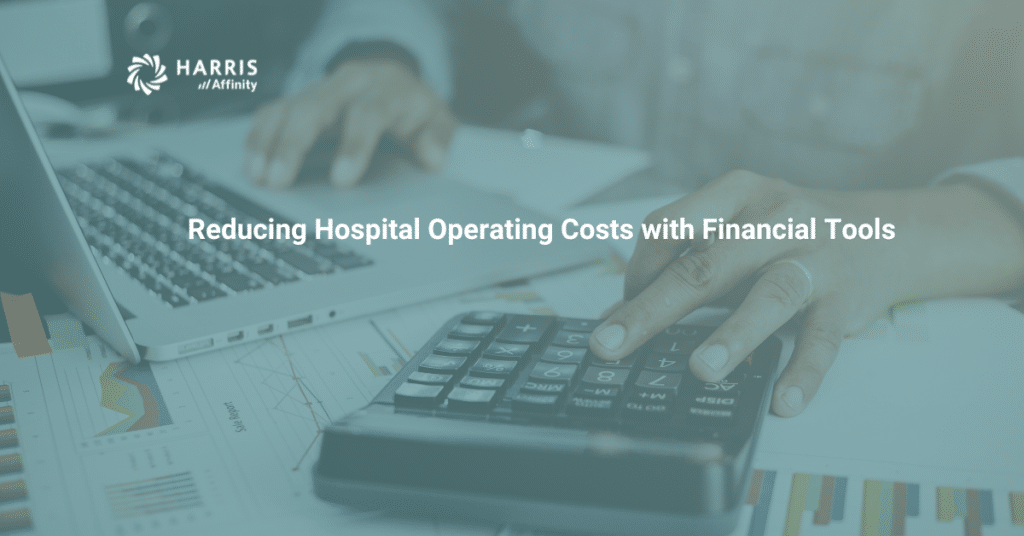Hospitals face constant pressure to deliver high-quality patient care while reducing operating costs effectively. For hospital finance professionals, the challenge is to identify and implement strategies that reduce hospital operating costs without compromising the quality of care. Leveraging financial tools can be a game-changer in achieving this delicate balance.
Navigating 2024: Trends in Healthcare Financial Decision Support
Understanding the Financial Landscape of Hospitals
Before diving into specific tools, it’s essential to understand the financial landscape of hospitals. Hospitals have a unique financial structure that includes revenue from patient services, government programs like Medicare and Medicaid, private insurance reimbursements, and out-of-pocket patient payments. Operating costs include salaries and wages, medical supplies, utilities, and administrative expenses.
Montage’s Health’s Journey with a Hybrid Costing Strategy
Financial Planning and Budgeting Tools
Activity-based costing assigns costs to products and services based on the resources they consume. In a hospital setting, ABC can help identify the true cost of specific procedures, treatments, and services. By understanding these costs at the patient and Service Line levels, hospitals can make informed decisions about pricing, budgeting, and cost-cutting measures.
For example, knowing the exact cost of a surgical procedure can help hospitals set more competitive and transparent pricing strategies. Additionally, identifying high-cost supplies and services can highlight areas where efficiency improvements are needed, such as clinical variation, ultimately leading to significant cost reductions.
Research has shown that hospitals implementing ABC can achieve more precise cost control and better financial performance. Hospitals using ABC could reduce operational costs by up to 10% while improving service quality. Moreover, hospitals adopting ABC were better equipped to handle financial pressures and regulatory changes.
Financial Analytics and Reporting Tools
Predictive analytics uses historical data and machine learning algorithms to forecast future trends. In healthcare, predictive analytics can predict patient admission rates, resource utilization, and financial performance. This foresight allows hospitals to plan more effectively and allocate resources efficiently, ultimately reducing operating costs.
For hospitals, predictive analytics can help in several critical areas:
Patient Admission Rates: By analyzing historical admission data, predictive models can forecast future admission trends. This information allows hospitals to anticipate patient volume and plan accordingly, ensuring that sufficient staff and resources are available to meet patient needs. Predictive analytics could accurately predict patient admissions, leading to better resource planning and reduced wait times.
Resource Utilization: Predictive analytics can identify patterns in resource usage, such as bed occupancy rates, medication consumption, and equipment utilization. By forecasting peak usage periods, hospitals can optimize inventory management and reduce costs associated with overstocking or shortages. Predictive analytics helped a hospital reduce its emergency department costs by optimizing staffing levels and resource allocation.
Financial Performance: Predictive models can project future financial performance based on past revenue and expense data. This capability allows hospitals to anticipate financial challenges and implement proactive measures to mitigate risks. For instance, predictive analytics can identify potential cash flow issues and suggest strategies to improve revenue cycle management.
Reducing hospital operating costs without compromising the quality of care is a challenging yet achievable goal for healthcare providers. The integration of advanced financial tools such as Activity-Based Costing (ABC) and predictive analytics has proven to be highly effective in optimizing hospital financial management. These tools provide hospitals with detailed insights into cost structures, resource utilization, and future trends, enabling more informed decision-making and strategic planning.
Harris Affinity offers a comprehensive financial management solution designed specifically for healthcare institutions. This platform integrates various financial tools, including ABC, to provide hospitals with the insights needed to manage costs effectively. By adopting Harris Affinity, hospitals can streamline their financial processes, enhance data-driven decision-making, and ultimately achieve greater financial sustainability.

